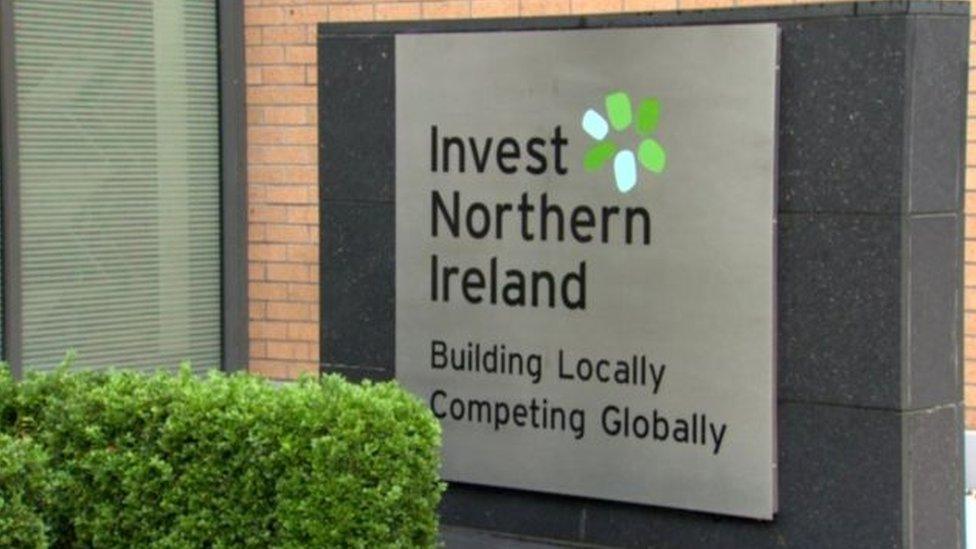Invest NI 'pauses' grant funding over budget uncertainty
- Published

Invest NI said it is currently unable to issue any new financial offers whilst it awaits new budget allocation
Invest NI has suspended new offers of financial support to potential investors because of uncertainty about its budget.
The agency's December board minutes note it has "paused issuing letters of offer that would increase commitments against next year's budget".
The board members were told the pause was likely to last until mid January.
However an Invest NI spokesperson told the BBC it was still in place.
In a statement, Invest NI said: "In response to the current budget position, we have been asked by our funding department to pause activity that would incur new financial commitments beyond March 2022.
"Whilst we await clarification on our potential 2022/23 budget allocation, we are currently unable to issue any new financial offers."
The December board minutes state that the move "may likely have an impact on targets, in-year budget spend and company engagement, depending on how long the pause lasts for".
The move does not impact grants which have already been agreed.
Economy Minister Gordon Lyons said it was "simply not the case" that there would be no financial support for Northern Ireland businesses in 2022.
"It certainly is the case we are going to continue to support businesses in 2022, that has always been the case," Mr Lyons told the Northern Ireland Assembly.
"However due to the uncertainty around our budget there will have to be decisions taken on new businesses that haven't already been agreed."
Invest NI has been warning since 2020 that it was facing a potential funding problem due to the loss of EU grants.
A substantial part of its budget was from an EU fund, the ERDF.
That funding will no longer be available as a result of Brexit and has not been fully replaced by the UK government.
'No soft options'
Last month, Invest NI's parent department, the Dependent for Economy, told MLAs that the loss of EU funding could have seriously negative consequences.
Sharon Hetherington, the department's finance director, was setting out the potential effects of Stormont's three-year draft budget.
Her presentation outlined how over the next three years more than £100m in core funding which would have come from the EU will no longer be available.
That is more than double the approximately £45m cash increase the department is getting from Stormont funds.
She said: "Department funding will decline during the budget because of the lack of replacement structural funding for core services."
She added that skills and innovation programmes would feel the worst effects and that are "no soft options to balance the books".
Related topics
- Published17 December 2020

- Published12 January 2022
